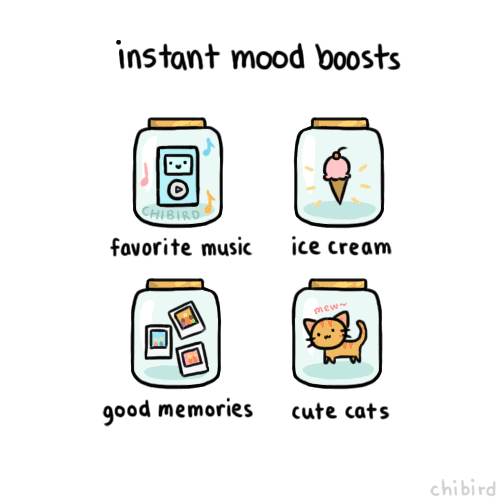- Subscribe to RSS Feed
- Mark Topic as New
- Mark Topic as Read
- Float this Topic for Current User
- Bookmark
- Subscribe
- Mute
- Printer Friendly Page
Our Guide To: Building Your Toolkit

It's overwhelming trying to choose from the hundreds of ways to support wellbeing. People often talk about having a mental health "toolkit" - the idea is that you'll have a bunch of tools to use when you're feeling down.
If your brain goes into overdrive trying to work out a mental health plan of action, this is a quick guide to building your tool-kit.
- It can bring on anxiety when there are too many things to think about and options to chose from. Start with one thing you think will help you build your tool-kit.
- To start you can ask yourself a few questions. What tools do I already have? What areas do I need more support with? The answers to these questions might help you focus in on what you need to acquire more tools.
- Take action! Once you notice the gaps in your kit, take action to fill them. Ask for help, be gentle with yourself and remember it doesn't happen overnight.
I'm going to share a little example of my toolkit and feel free to shares yours too!
Emotional tool: message a friend and have a chat/laugh, call my mum and have a cry.
Physical tool: plan and eat nutritious meals, go for short walks, stretch and breathe.
Mental tool: learn something new, watch a doco, listen to music.
Comments
I like this idea too!
Physical:
- Excersing in ways that I can enjoy
- Eating healthy foods that I like
- Having a morning/evening skincare routine
Emotional
- Making the effort to socialise more
- Going out and enjoying myself (within COVID restrictions)
- Getting my work done in a timely manner
- Being kind to myself and others
Mental
- Writing down my plans for the week and day so I can stay on track
- Taking breaks when I'm stressed
- Meditation
- Learn new skills
- I have a box full of things that have sentimental value to me. My own treasure box
Emotional tool
- CBT Workbooks
- Talk to my mum
- Mediation (hot chocolate mediation)
Physical tool
- Yoga
- Pilates
Mental tool
- Learning Japanese
- Reading (currently reading The Spy and the Traitor by Ben MacIntyre)
Hi @Bre-RO, thankyou for starting such an awesome thread!
A few things I have found that help me when I feel overwhelmed/stressed/anxious are:
Emotional Tool Kit:
- Communicate and express my real feelings constructively rather than trying to feel what 'I think I should feel'.
- Space to cry, be vulnerable and make mistakes
- Self compassion
- Meditation
- Self care activities like journalling, playing music, going for long walks and yoga.
Mental Tool Kit:
- WRITE IT DOWN! Name the painful thoughts and beliefs.
- Observe my mental dialogue and my self talk from a place of curiosity
- Break large tasks up into smaller portions and prioritise
- Organise myself through calendars and lists
- Recognise and plan for my patterns of behaviour (ie. get home from work grumpy and stressed, take myself away for 15 minutes of breathing or chill time before interacting with others).
-Scheduling in time for feeling!
Physical Tool Kit:
- Change my physical space
- Go for a long walk, run or do yoga
- Eat well and get sleep!
I love this idea! I had to look up different kinds of self care to make different toolbox sections

🧰 Physical toolbox 🧰
- sleep a healthy amount (not too much or too little)
- eat a balanced diet (make sure I'm not missing out on anything or having too much of one thing)
- exercise: go for walks, stretching
-look after self if unwell/ in pain
🧰Emotional toolbox 🧰
-self compassion, generating warmth and hope
-checking in on mood and distress before it gets too much
- mindful breathing
-hug a pillow
🧰Social toolbox🧰
-smiling and signalling openness even if I don't feel like it because it will make me feel more open
-checking in on friends, organising time to meet up
-hanging around people that make me happy
-talking to professional supports
-healthy boundaries
-socialising
-catsss ![]()
🧰Mental toolbox🧰
-do things I enjoy, listen to music, watch tv, do things that make me feel useful
-colouring, puzzles for high distress
-learning new skills
🧰Miscellaneous🧰
-having a clean room can help..
-balancing study and breaks
-living in line with my values
Really love your list @Lost_Space_Explorer5 ! May I ask what signalling openness is? I haven't heard of that before and it seems like something I would love to try ![]()






